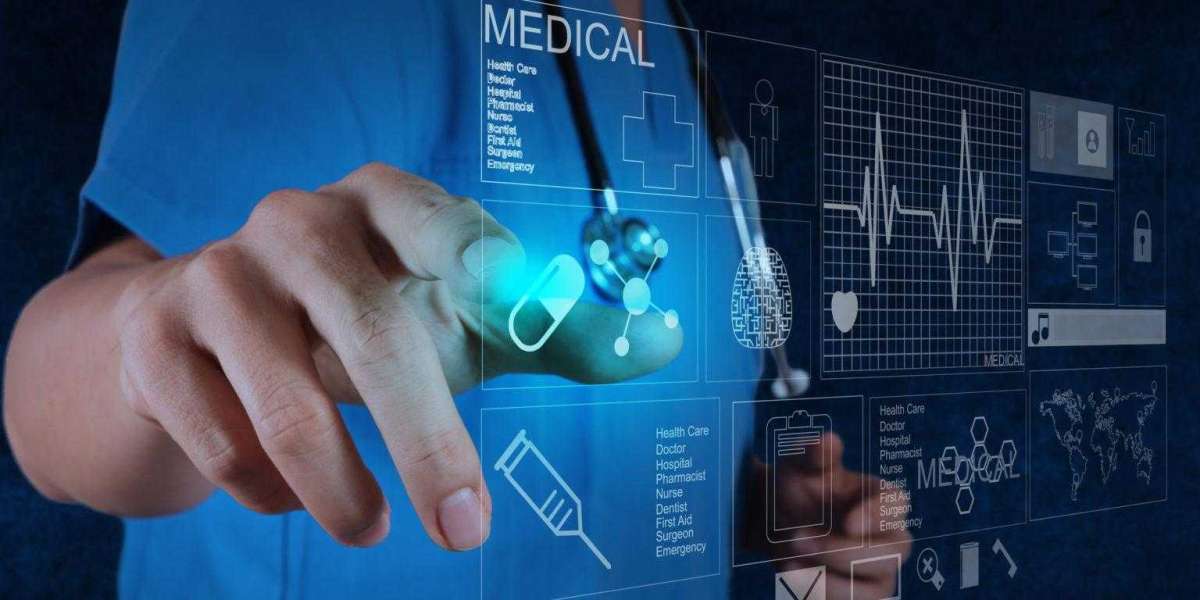The Expanding Universe of Healthcare Biometrics
The healthcare sector is undergoing a digital revolution, and Healthcare Biometrics Market Growth and Trends Report projects a promising future of the industry. This market is anticipated to reach a staggering USD 79.2 billion by 2032, driven by a CAGR of 22.1%. This growth is fueled by increasing concerns about data security, the rise of telemedicine, and the potential for biometrics to personalize and improve patient care.
Biometrics refer to the unique biological characteristics used for identification and authentication. In healthcare, these can include fingerprints, facial recognition, iris scans, voice patterns, and even gait analysis. Biometric technologies offer several advantages within the healthcare landscape:
- Enhanced Security: Biometrics provide a more robust layer of security compared to traditional passwords or PINs. This is crucial for safeguarding sensitive patient data and preventing unauthorized access to electronic health records (EHRs).
- Improved Patient Identification: Biometrics can help eliminate errors associated with traditional identification methods, ensuring that the right patient receives the right treatment. This is particularly beneficial for patients with similar names or those who are unable to communicate effectively due to illness or injury.
- Streamlined Patient Access: Biometric authentication can simplify access to healthcare services, especially in telemedicine consultations. Imagine a future where patients can securely log in to virtual appointments using a fingerprint scan or facial recognition.
- Personalized Care Management: Biometric data from wearable devices can provide valuable insights into a patient's health. This data, when combined with traditional medical records, can empower healthcare providers to deliver more personalized and preventative care strategies.
Leading the Charge in Innovation:
Several companies are at the forefront of healthcare biometrics advancements.
- NEC Corporation, a Japanese tech giant, recently announced its latest facial recognition technology specifically designed for secure patient identification in healthcare settings.
- 3M Cogent, a leader in fingerprint scanners, is actively involved in developing solutions for secure access control in hospitals and clinics.
The Future of Healthcare Biometrics:
As technology advances, we can expect to see even more innovative applications of biometrics in healthcare. Continuous patient monitoring with biometric sensors, real-time medication adherence tracking, and biometric-enabled access to medical facilities are just a few possibilities on the horizon. However, it's important to acknowledge ethical considerations surrounding data privacy and potential biases within biometric algorithms. As this field evolves, ensuring responsible development and implementation will be paramount.
Biometrics in Telemedicine Platforms
Telemedicine has transformed the way healthcare is delivered, offering patients greater convenience and access to specialists. Biometrics in Telemedicine Platforms is emerging as a game-changer, further enhancing security and streamlining the telemedicine experience.
Traditionally, telemedicine platforms rely on passwords or knowledge-based authentication for user verification. However, these methods can be vulnerable to security breaches. Biometrics offers a more secure alternative. Fingerprint scanning or facial recognition can ensure that only authorized individuals are accessing telemedicine platforms and patient data is protected.
Beyond security, biometrics in telemedicine platforms hold promise for improved patient engagement and data collection. Imagine a scenario where a patient simply uses their fingerprint to log in to a telemedicine appointment. During the consultation, wearable devices with biometric sensors can collect real-time vital signs like heart rate and blood pressure, providing valuable data to the healthcare provider. This data can be crucial for remote patient monitoring and early detection of potential health issues.
Benefits of Biometrics in Telemedicine:
- Enhanced Security: Biometrics significantly reduces the risk of unauthorized access to telemedicine platforms and patient data.
- Improved Patient Experience: Biometric logins offer a faster and more convenient way for patients to access telemedicine services.
- Real-Time Health Data: Biometric data from wearables can provide valuable insights into a patient's health during telemedicine consultations.
- Reduced Costs: Improved patient engagement and remote monitoring can potentially lead to reduced healthcare costs in the long run.
Industry Frontrunners:
The healthcare biometrics landscape is brimming with innovative companies.
- Imprivata, a US-based leader in healthcare IT security, recently unveiled its latest solution that integrates facial recognition with telemedicine platforms. This innovative solution streamlines patient verification and enhances security during virtual consultations.
- Suprema Inc., a South Korean company, is making strides with its fingerprint scanner technology specifically designed for the hygiene-conscious healthcare environment.
The Future of Biometric Telemedicine:
The integration of biometrics into telemedicine platforms is still in its early stages, but the potential is undeniable. As technology advances, we can expect to see even more sophisticated biometric applications tailored for telemedicine. This could pave the way for a future where secure, data-driven telemedicine becomes the norm, improving healthcare accessibility and outcomes for all.
While some concerns exist regarding data privacy and potential biases in biometric algorithms, the healthcare industry is actively working towards addressing these issues. Standardization and robust regulatory frameworks are crucial for ensuring responsible development and deployment of biometric technologies in telemedicine.
Here are some exciting possibilities on the horizon for biometric telemedicine:
- Multimodal Biometric Authentication: Combining fingerprint scanning with facial recognition or voice verification can create an even more secure login process for telemedicine platforms.
- Behavioral Biometrics: Analyzing subtle behavioral patterns during telemedicine consultations, such as typing rhythm or voice tone, could offer insights into a patient's emotional state and overall well-being.
- AI-powered Biometric Analysis: Integrating Artificial Intelligence (AI) with biometric data from wearables can enable real-time health assessments and early detection of potential problems during telemedicine consultations.
- Biometric-enabled Remote Patient Monitoring: Imagine a future where patients wear biometric sensors that continuously monitor vital signs and transmit data securely to healthcare providers in real-time. This could revolutionize chronic disease management and preventative care through telemedicine.
For more information visit at MarketResearchFuture
Other Trending Reports
Advance Anesthesia Monitoring Devices Market














